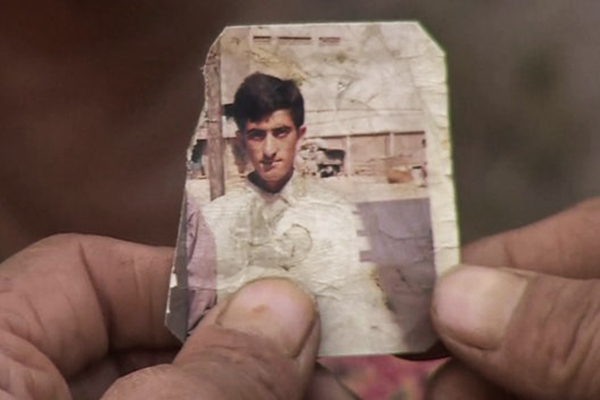The Islamabad High Court’s verdict on the FIA’s inquiry into death row inmate’s age at sentencing expected on Friday.
The Islamabad High Court on Wednesday stayed for the third time the execution of a convict who was allegedly sentenced to death while still a juvenile.
An Anti-Terrorism Court on April 24 issued a black warrant for Hussain’s execution, scheduling it for May 6, after the Federal Investigation Agency claimed it had not found any evidence that he had been a juvenile at the time of his arrest.
Hearing a petition by non-profit human rights firm Justice Project Pakistan, the Islamabad High Court found that the inquiry into Hussain’s age was “prima facie illegal.” Justice Athar Minallah said the federal government’s mechanism to probe Hussain’s actual age at the time of his arrest and sentencing was contrary to the methodology laid down by the Supreme Court and sought guidance on whether there was any legal precedence for reopening the case. Proceedings are expected to end tomorrow.
“We hope that at the final hearing on Friday, the government’s misguided attempts to undermine Shafqat’s juvenility are dismissed once and for all,” said JPP’s executive director, Sarah Belal. “There must now be a full and proper review of the very serious issues raised in this case and the many others like it.”
In a report submitted to the Interior Ministry on April 18, the FIA concluded that Hussain was 23 when he was jailed for allegedly kidnapping and murdering a 7-year old boy in 2004. However, Hussain and JPP claim he was 14 at the time of the sentencing, which was based on a confession obtained through torture.
The “unverified” text of the FIA report available with Newsweek states Hussain was 23 in 2004, based on a huliya form (a document that records a prisoner’s physical condition at time of arrest), police and prison records, and a statement signed by Hussain. JPP has questioned the validity of these records, claiming none of them have been shared with them or made public. Hussain is also an unregistered citizen who had no official government identification at the time of his arrest, making it difficult to confirm his age. This is a common problem in Pakistan where, according to UNICEF, only around 27 percent of births of children under the age of five are properly registered.
According to JPP, estimates of Hussain’s age are based on visual assessments, which the Supreme Court has recognized as unreliable in the past. A birth certificate obtained by his family in Azad Jammu and Kashmir, stating he was born in 1991, was cancelled by the FIA as a “fake” document.
The FIA report also cites a school record as proof that Hussain was not born in 1991. However, a copy of the school register available with Newsweek states that Hussain was born on Aug. 20, 1986. This would still make him only 17 at the time of his arrest.
JPP claims the FIA cannot legally conduct an inquiry into Hussain’s age, adding that the government did not respond to demands for an independent and transparent investigation based on internationally accepted parameters. It has requested an independent body, such as the National Commission for Human Rights, should probe the matter.
JPP has also accused the FIA of intimidating witnesses during its inquiry into Hussain’s age, claiming Sakhi Zaman, Hussain’s cousin who applied for his birth certificate in Kashmir, had been detained and threatened by a federal government team. The FIA has denied this, terming the accusations “baseless.”
Hussain’s isn’t the first case where an alleged juvenile faces the gallows. Since 1990, there have been at least four minors whose executions went public—Shamun Masih, 14, in 1997, Ali Sher, 13, in 2001, Mutabar Khan, 16, in 2006, and an unnamed inmate in 1992, according to the Death Penalty Information Center. Many advocacy groups claim this number falls far short of reality, suggesting there are many cases that are never made public.
Pakistan is obligated, under both international and domestic law, to prohibit the execution of juveniles. In 1990, Islamabad ratified the Convention on the Rights of the Child, which guarantees every child the inherent right to life, and provides that neither capital punishment nor life imprisonment without the possibility of release can be imposed for offenses committed by minors. Sentencing minors to death also violates the International Covenant on Civil and Political Rights, of which Pakistan is a signatory. Under the Juvenile Justice System Ordinance, promulgated in 2000, it is illegal to sentence to death any person under 18.
With the legal framework already in place, the U.N. has urged Pakistan not to execute juvenile prisoners, and has specifically implored the government to pardon Hussain in light of the controversy surrounding his trial and subsequent sentencing.
Juan E. Méndez, U.N. special rapporteur on torture, has also criticized the execution of adults based on crimes committed while they were children. “Imposing capital punishment on any person who was a child [under 18] when he or she committed the crime is a violation of rule of customary international law,” he told Newsweek. “The international community will continue to insist on Pakistan [and other countries] complying with this very important principle.”

